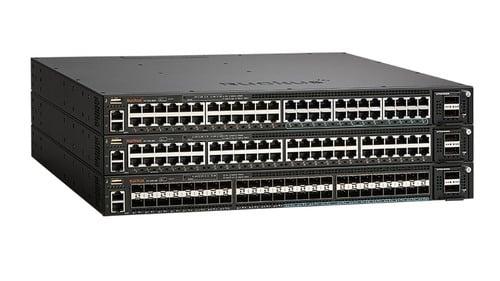A 48-port switch is a networking device that allows multiple devices to connect and communicate within a local area network (LAN). It provides a central hub for data transmission, enabling efficient and reliable network connectivity. Here's a detailed overview of 48-port switches, their features, benefits, and common applications:
What is a 48-Port Switch?
48 Ports Switch is a type of Ethernet switch that features 48 Ethernet ports for connecting devices such as computers, servers, printers, IP cameras, and more. It acts as a central point of connectivity within a network, facilitating the exchange of data packets between devices.
Features of 48-Port Switches
48 Ethernet Ports: A 48-port switch offers 48 Ethernet ports, allowing for the simultaneous connection of up to 48 devices to the network.
Gigabit Ethernet: Many 48-port switches support Gigabit Ethernet (10/100/1000 Mbps), providing high-speed data transfer rates for fast and efficient network performance.
Rack-Mountable: 48-port switches are often designed to be rack-mountable, making them suitable for installation in server racks or network cabinets.
Managed or Unmanaged: These switches come in both managed and unmanaged versions. Managed switches offer advanced features such as VLANs, QoS, and SNMP management, while unmanaged switches are plug-and-play with no configuration needed.
Power over Ethernet (PoE): Some 48-port switches include PoE support, allowing them to deliver power to PoE-enabled devices such as IP phones, wireless access points, and surveillance cameras through the Ethernet cable.
Redundant Power Supply: Higher-end 48-port switches may offer redundant power supply options for increased reliability and uptime.
Benefits of 48-Port Switches
Scalability: With 48 ports, these switches provide ample room for expanding the network by connecting additional devices as needed.
Consolidated Connectivity: A single 48-port switch can replace multiple smaller switches, simplifying network management and reducing cable clutter.
High-Speed Connectivity: Gigabit Ethernet support ensures fast data transfer speeds, ideal for applications that require large file transfers or high-bandwidth usage.
Efficient Data Handling: Advanced features in managed 48-port switches, such as VLANs and QoS, allow for efficient traffic management and prioritization.
Cost-Effective: Compared to purchasing multiple smaller switches, a 48-port switch can be a cost-effective solution for businesses or organizations with numerous networked devices.
Centralized Management: Managed 48-port switches offer centralized management interfaces, allowing administrators to monitor and configure the switch from a single location.
Common Applications of 48-Port Switches
Enterprise Networks: Large organizations and businesses use 48-port switches to connect numerous computers, servers, printers, and other network devices in their office networks.
Data Centers: In data center environments, 48-port switches are used to interconnect servers and storage systems, providing high-speed and reliable connectivity.
Education Institutions: Schools and universities utilize 48-port switches in their IT infrastructure to support classrooms, labs, administrative offices, and campus-wide networks.
Surveillance Systems: 48-port PoE switches are ideal for powering and connecting multiple IP cameras in video surveillance systems, providing both data and power over Ethernet cables.
Hospitality: Hotels, resorts, and conference centers deploy 48-port switches to support guest Wi-Fi access, staff devices, POS systems, and other hospitality applications.
Conclusion
A 48-port switch is a versatile and efficient networking device that provides robust connectivity for numerous devices in a LAN environment. With features such as Gigabit Ethernet support, PoE capabilities, rack-mountable designs, and options for managed or unmanaged configurations, these switches offer scalability, high-speed connectivity, and simplified network management. Commonly used in enterprise networks, data centers, educational institutions, surveillance systems, and hospitality settings, 48-port switches play a crucial role in ensuring reliable and efficient data transmission within modern networks.
For more info. visit us:

